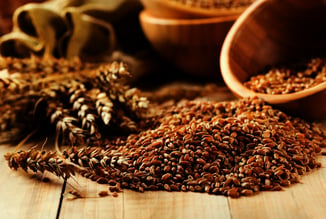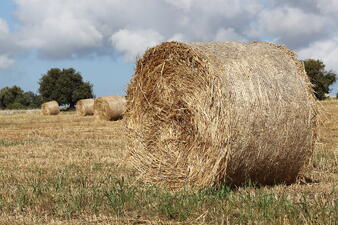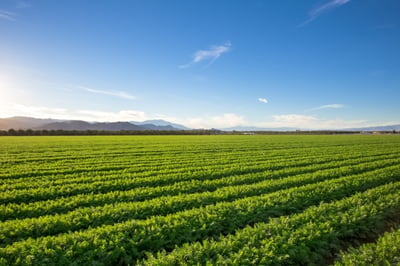If your business serves agricultural clients, you might be wondering why you should stock moisture meters for agriculture—or, you may need to convince your agriculture customers why they should use moisture testing devices.
One answer is that moisture meters can help your agriculture-oriented customers in a variety of ways, such as:
1: Optimizing Grain for Sale
 When selling grain products, farmers have to carefully balance the moisture content of said grain. Water adds weight—and nobody wants to pay for excess water weight. Too much water can reduce the price buyers are willing to pay because that extra water is something they’ll have to spend freight capacity on for no return on investment (ROI).
When selling grain products, farmers have to carefully balance the moisture content of said grain. Water adds weight—and nobody wants to pay for excess water weight. Too much water can reduce the price buyers are willing to pay because that extra water is something they’ll have to spend freight capacity on for no return on investment (ROI).
Too little water, on the other hand, can result in giving away free dry weight.
By checking grain moisture content with a moisture meter, your agricultural customers can ensure that the grain they’re selling is at just the right moisture content (%MC) for sale. Also, if some grain bags are too wet, and others are too dry, a grain moisture meter can be invaluable for determining how to mix grain samples to achieve the desired %MC for sale (or long-term storage).
2: Making Hay Baling Safer
 Another use for agricultural moisture meters is to make the baling and storage of hay safer for farmers. One often-underestimated risk of storing baled hay is that if the hay is too wet, it can promote bacterial growth. Over time, this can promote a spike in temperature and pressure that causes the hay bale to catch fire. Incidents of spontaneous combustion have caused entire barns to burn down, and exploded silos when dust particles caught fire.
Another use for agricultural moisture meters is to make the baling and storage of hay safer for farmers. One often-underestimated risk of storing baled hay is that if the hay is too wet, it can promote bacterial growth. Over time, this can promote a spike in temperature and pressure that causes the hay bale to catch fire. Incidents of spontaneous combustion have caused entire barns to burn down, and exploded silos when dust particles caught fire.
Using hay moisture meters, your agricultural clients can check the moisture content of hay in the windrow prior to harvesting and baling, during the baling process, or after baling to ensure that their hay remains at a safe %MC at every step of the way from the field to the barn.
Tracking hay moisture also has the benefit of helping hay growers optimize the nutritive value of their hay product by carefully controlling the moisture content of hay.
3: Optimizing Irrigation
 Another use for moisture meters on the farm is to help optimize irrigation schedules to avoid water waste and crop damage. Using specialized soil moisture meters and gypsum sensor blocks, your agriculture customers can make sure they’re keeping the amount of water available to the roots of their plants at just the right level to maintain crop health.
Another use for moisture meters on the farm is to help optimize irrigation schedules to avoid water waste and crop damage. Using specialized soil moisture meters and gypsum sensor blocks, your agriculture customers can make sure they’re keeping the amount of water available to the roots of their plants at just the right level to maintain crop health.
Controlling irrigation schedules with the help of a moisture meter also can help prevent soil erosion caused by overwatering. This, in turn, helps to minimize the need to fertilize soil to replace the nutrients that get washed away by overwatering.
4: Saving Farmers Money
By helping prevent soil erosion, spontaneous combustion in hay, and helping farmers optimize the %MC of their grain prior to sale, agricultural moisture meters can help farmers save money. In just a single harvest, a high-end moisture meter for agriculture could more than pay for itself with ease.
With all of these potential benefits, it’s easy to see not only why you should stock moisture meters for your agricultural industry customers, but why they should use them! Need more information about using moisture meters for agriculture to share with your customers? Contact Delmhorst today, or check out the free guide at the link below!

Comments